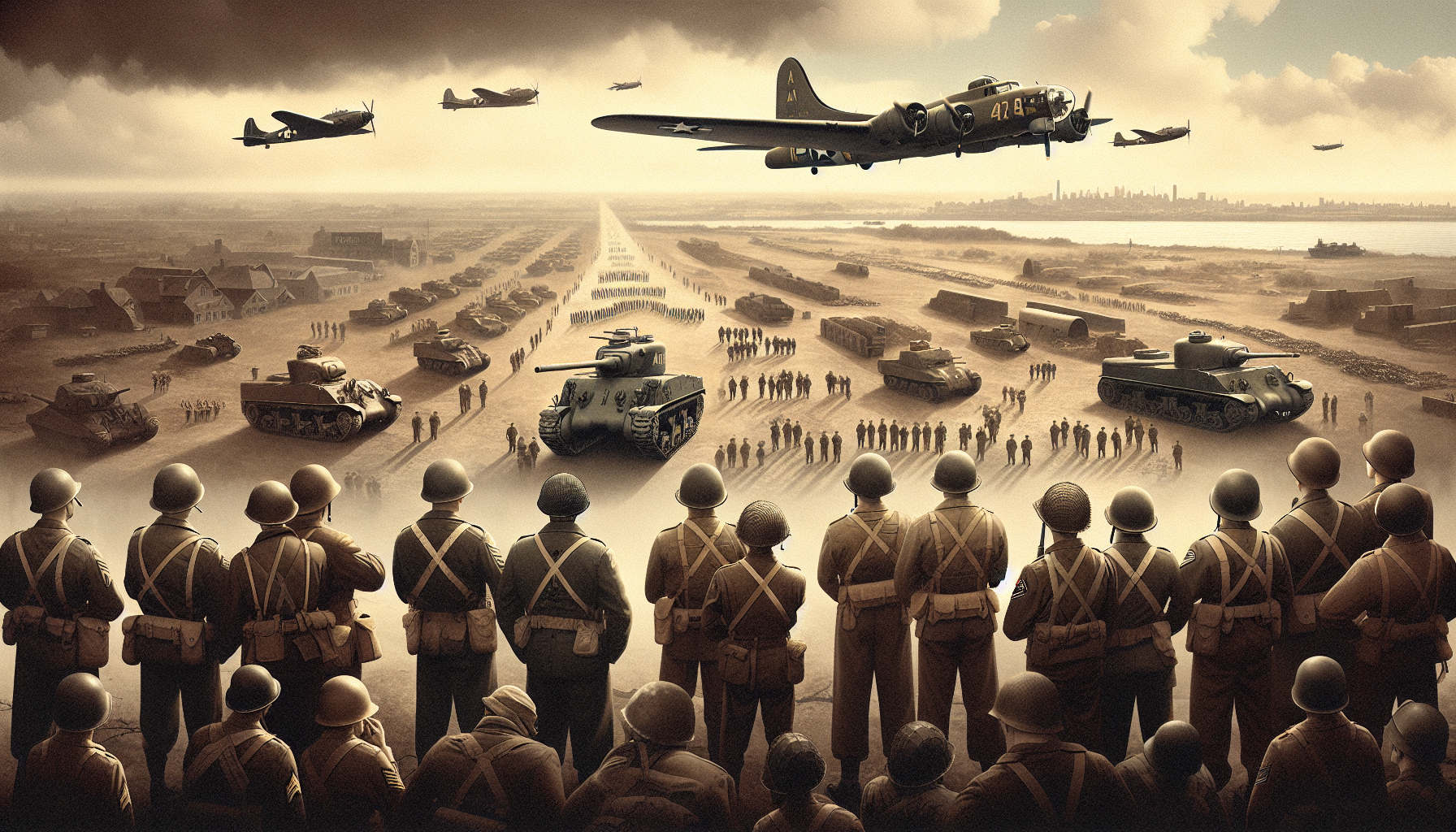Hearts of Iron IV: How to Use Diplomacy to Form Alliances
In the intricate world of Hearts of Iron IV, success hinges not just on the strength of your military but also on your ability to navigate the diplomatic channels that can make or break your ambitions. What better way to offset the looming threat of your enemies than to form strong alliances? As you steer your nation through the tumultuous waters of World War II, mastering diplomacy becomes your secret weapon.
Diplomacy in Hearts of Iron IV isn’t just a side quest—it's a core component of your strategy, an art form that requires cunning, foresight, and a pinch of charm. While it may sound as dull as watching paint dry, dealing with the intricacies of international relations can be as exhilarating as a last-minute battle victory. So, buckle up as we embark on a journey to explore the diplomatic landscape in Hearts of Iron IV, bringing harmony—or at least temporary peace—to this chaotic world.
Building Relationships with Key Nations
Let’s start with a simple truth: no nation is an island. Even the most self-sufficient country needs friends. In Hearts of Iron IV, building relationships with key nations can give you a leg-up, whether you're a formidable power or a small state trying to keep the wolves at bay. But how do you build these crucial ties? It's all about understanding who holds the cards you need.
The process begins with identifying nations that align with your strategic goals. Perhaps you're eyeing the vast resources of the Soviet Union, or maybe the industrial might of the United States is what you need to feed your war machine. Once you've pinpointed your target, engage them with diplomats, improve relations, and send pleasant envoys. It's as much about giving as it is about receiving. Picture yourself in a scene akin to an old-world courtship, where exchanging pleasantries could lead to lasting partnerships.
An anecdote comes to mind from a campaign where I led Germany down an unusual path towards alliance with China. By prioritizing trade relations and supporting them in small military engagements, I turned the tide, gaining a formidable ally in the East. It wasn’t easy—nor was it particularly conventional—but it highlighted the importance of patience and strategizing when it comes to diplomacy.
Negotiating Alliances and Trade Agreements
Negotiating in Hearts of Iron IV is akin to walking a diplomatic tightrope. One slip, and it could spell disaster for your war plans. The art of negotiating alliances and trade agreements is a careful dance, requiring tact, subtlety, and sometimes a bit of horse-trading.
When aiming to secure an alliance, always remember that every nation has its interests. You’ve got to offer something that they perceive as valuable, whether it's military aid, access to resources, or simply the guarantee of a secure border. Every promise matters, every deal should be calculated, and every outcome anticipated.
Imagine for a moment that you're courting France to join the Allies if you’re England. This part of the game offers exhilarating challenges, with trade negotiations becoming as intense as a negotiation scene straight out of a Cold War spy thriller. The key is to understand what you bring to the table and what they might need from it.
I’ve found through countless hours of play—and admittedly a few failures—that leveraging technology sharing can be a pretty sweet deal to dangle in front of potential allies. It’s a win-win, giving them a boost while subtly ensuring their loyalty.
Managing International Tensions and Conflicts
Ah, the inevitable chaos of international tensions. Even with the best-laid plans, tensions can erupt and pull alliances taut. Managing these turbulent relationships can feel like juggling fireballs—one misstep and you're burnt. The key is in recognizing the symptoms early and applying the balm of diplomacy.
When tensions rise, take a step back. Evaluate your nation's interests and those of your allies. Are you pushing too hard? Are you neglecting a crucial need of an ally? Sometimes, doing nothing is a strategy in itself, allowing tempers to cool and perspectives to realign.
Use your espionage effectively to gauge the temperature of international relations. Intelligence reports are like peeking at an opponent’s cards in poker—armed with that knowledge, you can forge a strategy that maintains peace or prioritizes military readiness for conflicts you cannot avoid.
I recall a scenario where a careless oversight led to a rift with Italy, nearly sinking my strategic plans. What helped was a carefully executed trade agreement that soothed frayed tempers and brought Italy back on board. It taught me that diplomacy isn't just about grand gestures but also small, genuine engagements.
Bringing it All Together
In Hearts of Iron IV, the art of diplomacy isn’t just about brokering deals and signing treaties. It’s about crafting relationships that can weather the stormy years of World War II. Whether you're forming alliances to combat a common enemy or managing delicate peace agreements, the diplomatic system gives you the power to shape your destiny.
Each decision affects not only your immediate diplomatic standing but also your future strategies. In this thrilling global chess game, be prepared to pivot, adapt, and rethink your strategies continually. After all, alliances once considered strong may fracture under new leadership or changing circumstances.
So, what's your next move in this geopolitical web? Dive into your next Hearts of Iron IV game armed with these insights and experiences and see how far your diplomatic finesse can take you. Whether you're a seasoned player or new to the game, there’s always room to refine your skills and achieve greatness, one alliance at a time.
As Winston Churchill might have put it, “Diplomacy is the art of telling people to go to hell in such a way that they ask for directions.” So go forth, and may your alliances be as strong and enduring as your steel reserves. Happy gaming!





